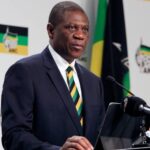In a concerning turn of events, the Democratic Republic of Congo (DRC) has witnessed an increase in ceasefire violations by various armed groups, forcing the East African Community Regional Force (EACRF) into combat. further unsettling the region.
These breaches have prompted the African Union (AU) to reconsider its peace interventions and devise new strategies to address the ongoing conflict.
The African Union first launched its Disarmament, Demobilisation and Reintegration programme in 2011, targeting conflicts like the one in the DRC.
This week, the continental bloc said its fourth phase of disarmament programmes in conflict zones will largely rely on local peace solutions backed by data. The UN Department of Peace Operations and the World Bank are supporting the programme.
Only strategic and “in-demand” interventions in conflicts will be prioritised with regional economic blocs and national governments allowed the lead role. This will ensure that the results in the areas of conflict prevention and response are fit for purpose, and impactful,” read a dispatch from the AU on the AU DDR Capacity Programme.
The AU says the new focus will be human rights and justice as well as conflict prevention through the persuasion of armed groups to join dialogue, but decisions will be informed by local data and realities, suggesting a focus on research and community involvement.
The DRC, already grappling with internal strife and armed insurgencies, has been striving to restore peace and stability for its citizens. However, recent ceasefire violations have significantly undermined these efforts, causing renewed tensions and concerns among both domestic and international stakeholders.
In light of the escalating violence, the AU is advocating for stronger adherence to the agreed-upon ceasefire by all armed groups operating in the DRC. The organisation emphasises that strict enforcement of the ceasefire is crucial to creating a conducive environment for meaningful dialogue and negotiations.









